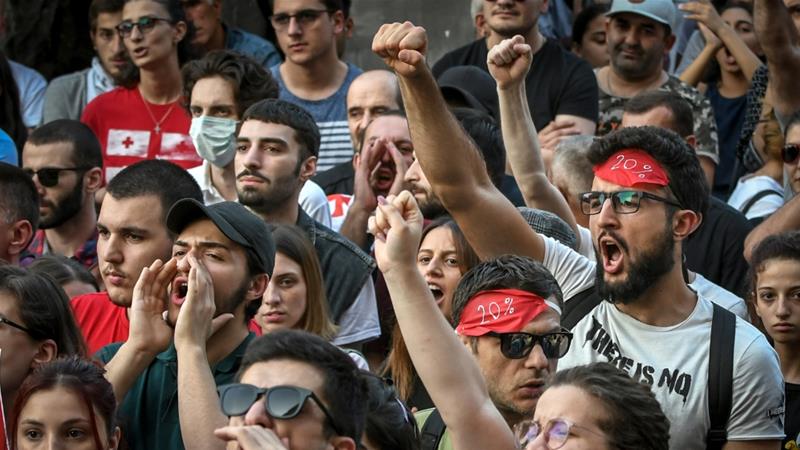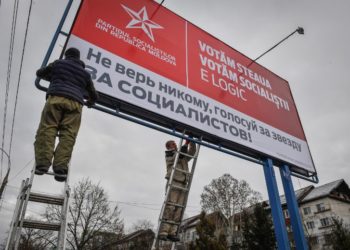Democracy is a buzzword in Georgia. In school, at dinner, on the street.
But so is Russian President Vladimir Putin. Except in the opposite way.
If democracy is admired, Putin, among Georgians at least, is despised. So is everything else precluding Georgians from achieving their democratic justice. And in this case, no mercy is shown for Russian or Georgian alike.
Still, even hatred has its own dimensions. Georgia, for example, according to the cover of The Financial, is Putin’s most hated country; and the feeling is definitely mutual.
The Financial 29 April article pic.twitter.com/I5hARbk4kz
— David Sakvarelidze (@dsakvarelidze) May 3, 2019
But recent events in Tbilisi, the capital of Georgia, go beyond mere hatred for a single individual.
Protests in Georgia
On June 20, a Russian politician and member of the Communist Party, Sergei Gavrilov, gave the opening speech at the Interparliamentary Assembly on Orthodoxy, a meeting of politicians from predominantly Orthodox countries, in the Georgian parliament. He did so from the seat reserved for the first speaker of the country.
Trigged by the literal and figurative image of a Russian as the head of Georgia’s ultimate policy-making institution, over 10,000 people gathered in front of the parliament to protest. Demonstrators showed their discontent with Gavrilov, who has previously declared support for the independence of Georgian’s breakaway regions, and the Georgian government officials responsible for arranging his visit.
In response to the largest protest Georgia has seen in years, the riot police was sent to the parliament building to disperse the participants. The police unexpectedly opened fire using rubber bullets, injuring 200 people, with two losing their eyesight, and arresting 305 civilians by the morning.
The next day, the violent response of the riot police prompted people to take the streets once again, demanding the Minister of Interior Affairs Giorgi Gakharia to resign. Since then, for over a month, Georgians have been protesting every night, calling for his resignation.
Democracy
These protests are a good sign for two reasons. One, because it shows the will, readiness, and desire of Georgian people for progressive democratic processes. And two, despite the police raid fiasco, it shows that Georgia, at least to a certain degree, allows its citizens to speak their mind, march on the street, and wave flags across roads and highways. Georgia is a win for democracy.
Putin responded to the protest differently by signing a temporary ban suspending flights between Russia and Georgia, which came into force on July 8.

But Georgians are not merely protesting against Gavrilov, Putin, or Russia. They are protesting against retroactive action. The young people on the street where born in an independent nation with a distinct border on the map – not a union of 15 states. They witnessed the democratic transition of their country and have been a part of worldwide globalization – not regional isolation. They travel across the European Union without visas, speak to foreigners in fluent English, and choose to accept nothing less than freedom. Freedom is all they know.
Georgians will not accept a return to the communist agenda, shared resources, or the title of an occupied nation. They are fighting against regress, discriminatory policies, and exclusive agendas.
Georgian people do not tolerate hatred, especially hatred for freedom. When they see someone, Gavrilov in this case, taking that freedom away – they fight back with love for their country. As U.S. presidential candidate Marianne Williamson said in the democratic debate on June 26: “love will win.”
The Georgian government, whoever it is today or tomorrow, will let love win. Because they will not have any other option.
So, where does Georgia go from here? Forward. Only forward. Because – quite surprisingly for Gavrilov – it is 2019. And in 2019, there is no time for communism.
Disclaimer: The views and opinions expressed here are those of the author and do not necessarily reflect the editorial position of The Globe Post.






















